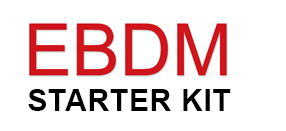A Framework; Not a Model
The Framework does not attempt to proscribe implementation in precisely the same way in every community. In this way it is not “a model.” It is, instead, intended to frame a purpose, articulate principles, and propose a process for decision making that can be applied to the system as a whole—to all those entering the system, regardless of their justice system status; to all types of cases, regardless of their severity; and to all stakeholders, regardless of their role.
– Morris Thigpen, NIC Director
The principle product of this initiative is the Framework for Evidence-Based Decision Making in Local Criminal Justice Systems (“the Framework”).
The Framework
- identifies the key structural elements of a system informed by evidence-based practice;
- defines a vision of safer communities; and
- puts forward the belief that risk and harm reduction are fundamental goals of the justice system, and that these can be achieved without sacrificing offender accountability or other important justice system outcomes.
The Framework both acknowledges the importance of the key premises and values underlying our criminal justice system and puts forward a set of principles to guide evidence-based decision making within that context. The principles themselves are evidence-based.
The Framework highlights some of the most groundbreaking research in the justice field—evidence that clearly demonstrates that we can reduce pretrial misconduct and offender recidivism.
It also identifies the key stakeholders who must be actively engaged in a collaborative partnership if an evidence-based system of justice is to be achieved.
Key Features of the Framework
Click here to download the Third Edition of the Framework.
The current Framework (Third Edition) was released as a “work-in-progress” since revisions and refinement were expected after pilot testing it in the field. The final version of the Framework is under development and will be released following the completion of Phase III.

